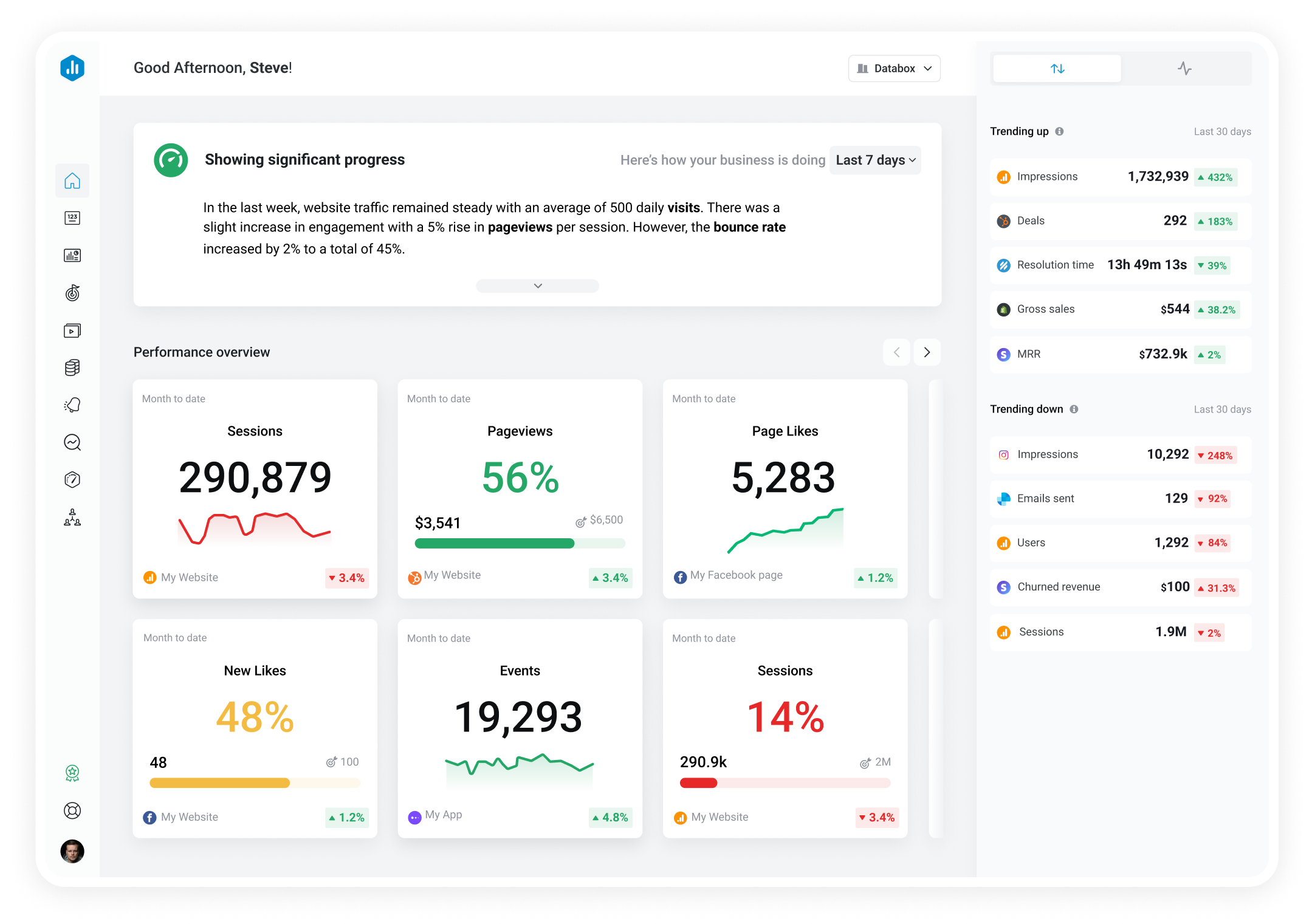Track all of your key business metrics from one screen
GET STARTED
 Shopify
Total Sales by Tag
Shopify
Total Sales by Tag Equates to Gross Sales - Discounts - Returns + Taxes + Shipping Charges during specified Date Range split up by Tag.
With Databox you can track all your metrics from various data sources in one place.
Databox is a business analytics software that allows you to track and visualize your most important metrics from any data source in one centralized platform.
To track Total Sales by Tag using Databox, follow these steps:
 Goals
Goals Scorecards
Scorecards Metric Digest
Metric Digest Metric Builder
Metric Builder Data Calculations
Data Calculations Performance Screen
Performance ScreenShopify dashboard template which will give you insights and a complete control over your Shopify store.

In order to be visible in Databox, tags should be bound to Orders in the Shopify account. The connected Shopify account should be checked to see if tags in the account are set for Customers, and if so, the tags should be added to Orders instead of Customers to be visible in Databox.
Shopify metrics in Databox are Event type metrics and Databox obtains the relevant data based on calculations of data for the specific event entity, such as an Order. Each entity received via the API will be stored in our database as a separate entry and each entry will have its own timestamp associated with it – the moment the event occurred. As a consequence, in cases when the Order that occurred in the past is edited, changed, or deleted in the Shopify User Interface after it has already been completed and synced to Databox, Databox cannot report on such historical data changes, which will result in discrepancies when data from Shopify is compared to values in Databox for the past Date Range.
